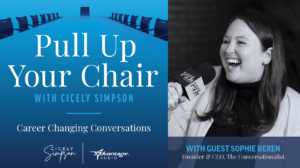If you have read this blog over the past few weeks, then you have seen posts on:
- The Loss of Justice Ruth Bader Ginsburg and the ensuing Supreme Court Battle
- 5 Steps of the Supreme Court Confirmation Process
- How the Coronavirus Could Derail the nomination process
This week, we start step #4 of the five (5) step confirmation process: Senate Judiciary Committee Confirmation Hearings.
The hearings started on Monday, just 22 days before Election Day. It is no surprise that the upcoming election was a dominant theme in this week’s proceedings.
Likewise, regardless of your party, the nomination and assumed confirmation of Judge Amy Coney Barrett will cement a conservative majority on the Court for decades to come.
Before we jump into what has occurred this week, just a reminder of who are the twenty-two (22) Members of the Senate Judiciary Committee presiding over this week’s hearings:
Republicans (Majority) – 12 Democrats (Minority) – 10
Sen. Lindsey Graham (SC), Chairman Sen. Dianne Feinstein (CA), Ranking Member
Sen. Chuck Grassley (IA) Sen. Patrick Leahy (VT)
Sen. John Cornyn (TX) Sen. Dick Durbin (IL)
Sen. Mike Lee (UT) Sen. Sheldon Whitehouse (RI)
Sen. Ted Cruz (TX) Sen. Amy Klobuchar (MN)
Sen. Ben Sasse (NE) Sen. Chris Coons (DE)
Sen. Joshua Hawley (MO) Sen. Richard Blumenthal (CT)
Sen. Thom Tillis (NC) Sen. Mazie Hirono (HI)
Sen. Joni Ernst (IA) Sen. Cory Booker (NJ)
Sen. Mike Crapo (ID) Sen. Kamala Harris (CA)
Sen. John Kennedy (LA)
Sen. Marsha Blackburn (TN)
Today is day four of the confirmation hearing process. My key takeaways from each day’s hearings are as follows:
Day 1 – Monday, October 12
The first day of hearings begins with opening statements by each Senator as well as an opening statement by the nominee.
To no surprise, Republican Senators’ opening statements focused on Judge Amy Coney Barrett’s strong qualifications to be on the Court, her historic nomination replacing the late Justice Ruth Bader Ginsburg, and her record as a jurist on the Seventh Circuit Court of Appeals as well as a law professor.
Democrat Senators’ opening statements focused on the McConnell Rule from March 2016 when he denied considering President Obama’s Supreme Court Nominee Merrick Garland – “The American people should have a voice in the selection of their next Supreme Court Justice. Therefore, this vacancy should not be filled until we have a new President.” This rule has been cited over and over during this week’s hearings.
The nominee explained she is an originalist in the model of late Supreme Court Justice Antonin Scalia, for whom she served as a law clerk in 1990s.
Perhaps the most notable occurrence on day one was the in-person attendance of Senator Mike Lee who tested positive for coronavirus after the September 26 Rose Garden ceremony. This attendance grabbed my attention because two other Senators, Thom Tillis and Ted Cruz, remain in quarantine participating in the hearing virtually.
Chairman Graham denied Democrats request for daily coronavirus testing for Members of the Committee given the coronavirus outbreak in the Senate.
Day 2 – Tuesday, October 13
Day two allows for Senators to engage in question and answers with the nominee. Each Senator questions the nominee for 30 minutes resulting in an 11-hour hearing.
I have watched years of Supreme Court nomination hearings (read my previous post if you want to know why I geek out on Supreme Court nomination hearings).
Unlike other nomination hearings, this nomination hearing seems light on legal substance in the nominee’s answers. I recall vividly the confirmation hearing of now Chief Justice John Roberts as a point of comparison. There were substantive legal exchanges between Senators and John Roberts that I have not seen this week.
Granted, the confirmation hearings for now Associate Justice Brett Kavanaugh were not substantive legal exchanges either but that is a whole other subject.
I thought Senators asked softball questions that the nominee declined to answer. For example, she was asked election intimidation by Senator Klobuchar. Judge Barrett declined to answer to which Senator Klobuchar cited the law that prohibits election intimidation.
Similarly, Judge Barrett was asked about President Trump’s statements regarding a peaceful transfer of power after the election. She was also asked if the President can move election day.
Both of these answers are in the text of the United States Constitution. As a self-proclaimed originalist, Judge Barrett simply needed to point to the text of the Constitution in her answers. She declined to answer both.
Even though these questions were asked by Democrats, they are softball, easy homerun questions in my opinion.
Questions also centered on the Commerce Clause, the fate of the Affordable Care Act (“Obamacare”), and abortion rights including Democrats sharing stories from their constituents about the importance and impact of the Affordable Care Act.
Day 3 – Wednesday, October 14
Yesterday, all three Senators who were in quarantine attended the hearings in person.
All three said their doctors approved of their appearance.
That just makes me nervous for everyone in that enclosed windowless hearing room, but I digress…
The Affordable Care Act, election questions, gun rights and the Second Amendment, voting rights, and even questions about climate change were posed to the nominee.
The lawyer in me just smiles at Senator Mike Lee’s questions and comments about the dormant Commerce Clause.
It bears repeating that this week’s hearings have been the exact opposite of the Brett Kavanaugh hearings. The exchanges are respectful even when there are substantive disagreements, no interrupting, no yelling…and no mention of beer drinking.
Day 4 – Thursday, October 15
Today, the Senators will hear from outside legal experts who both support and oppose the nomination. Throughout the hearings, groups who support and oppose the nomination are mentioned and their letters are often entered into the record as part of the official hearing record.
This morning began with Sen. Blumenthal making a motion to adjourn the hearings.
Senators from each side argued their views about the process. The arguments back and forth can be summed up in two ways:
- Elections have consequences as argued by Republican Senators.
- Rushing a nomination through the Senate within three of weeks of an election when the Senate is not in session due to a coronavirus outbreak in the middle of a pandemic is not right. The Senate should be working on the pressing need for more coronavirus aid.
To Chairman Graham’s credit, he allowed every Senator to speak (some spoke twice) their mind which lasted two hours.
Then the hearing commenced with questions and answers from the panel of witnesses:
- Dr. Farhan Bhatti, Care Free Medical, Lansing, MI
- The Honorable Thomas Griffith, Retired Judge, United States Court of Appeals for the District of Columbia Circuit
- Kristen Clarke, President and Executive Director, Lawyers’ Committee for Civil Rights Under Law
- Saikrishna Prakash, James Monroe Distinguished Professor of Law, University of Virginia School of Law
- Crystal Good of Charleston, WV
- Amanda Rauh-Bieri, Associate, Miller Canfield, Grand Rapids, MI
- Stacy Staggs, Little Lobbyists, Charlotte, NC
- Laura Wolk of Washington, DC
Chairman Graham has set the confirmation vote for October 22.
Barring any unforeseen circumstances, Judge Amy Coney Barrett will receive a majority vote in the Judiciary Committee and her nomination will be sent to the full Senate for a vote.


